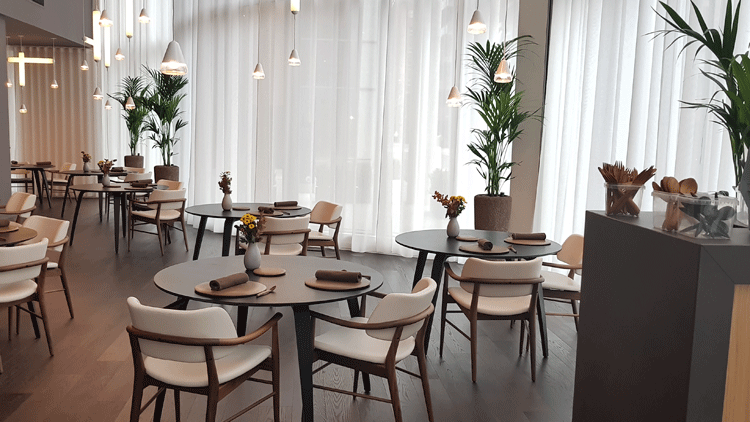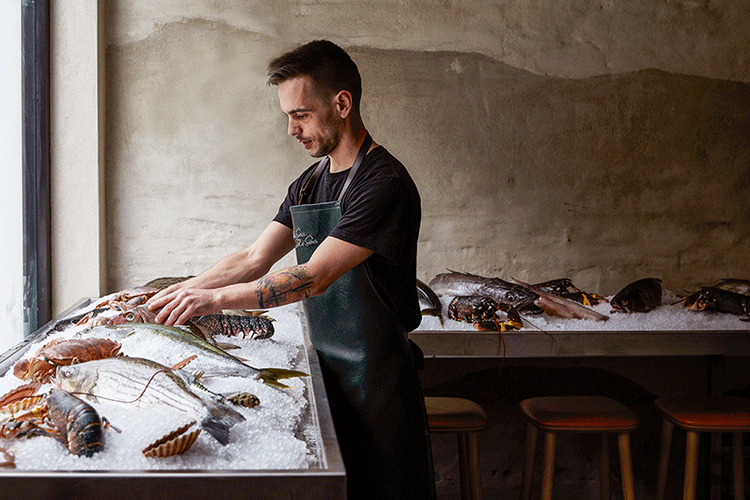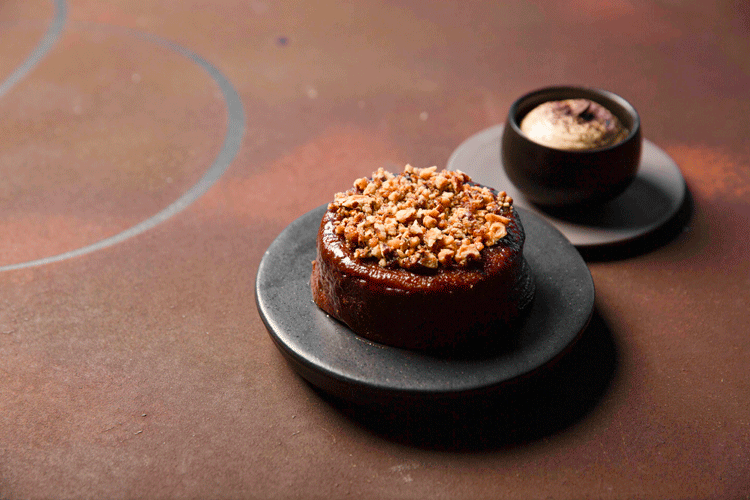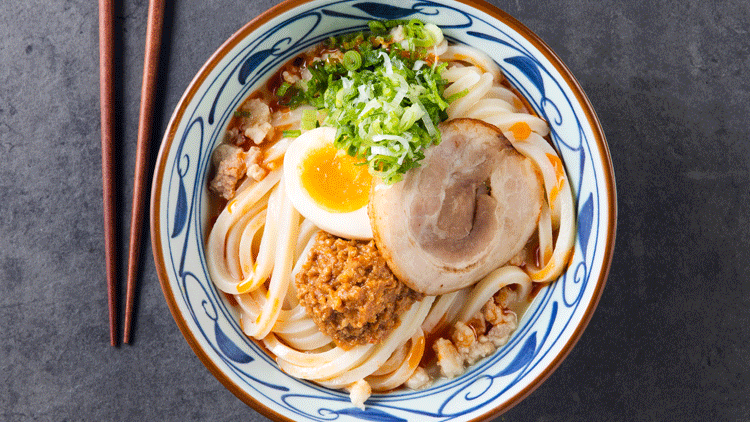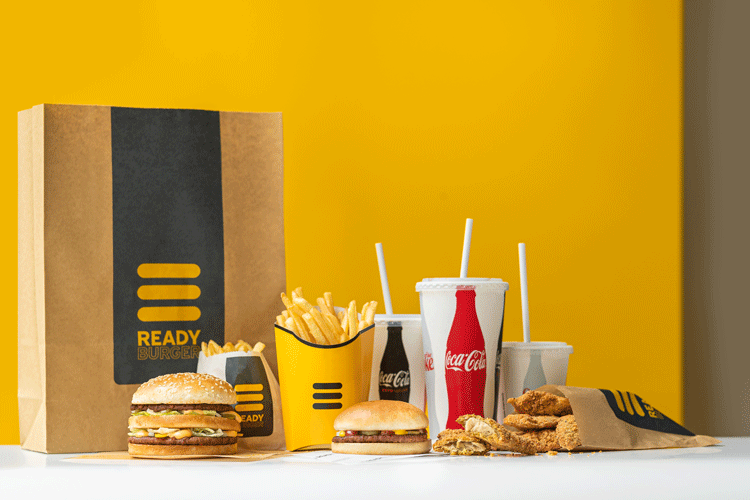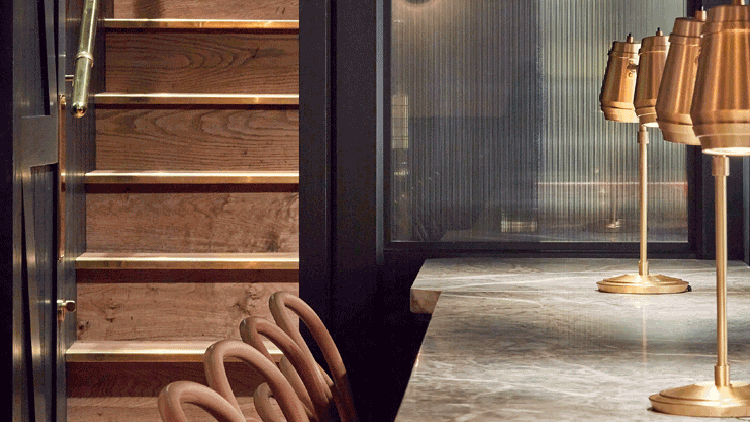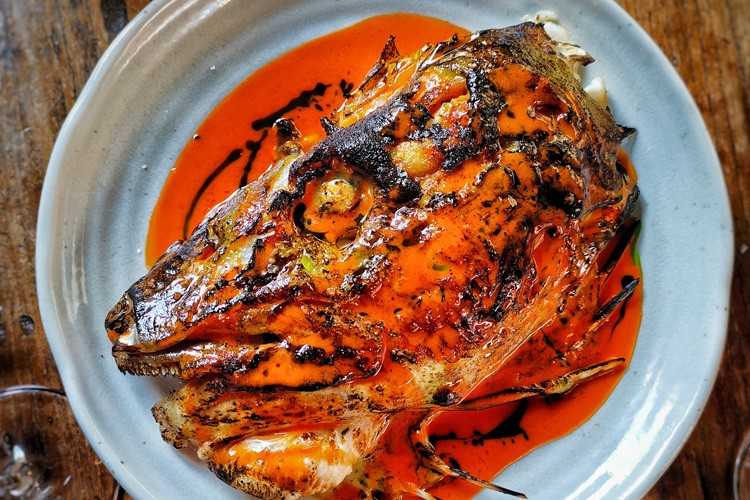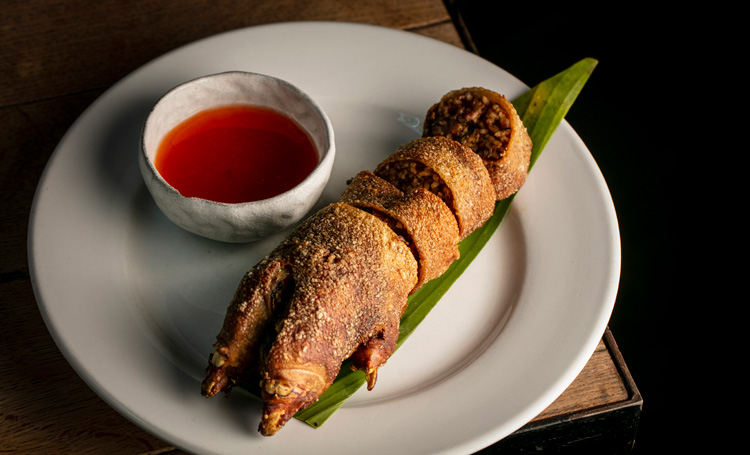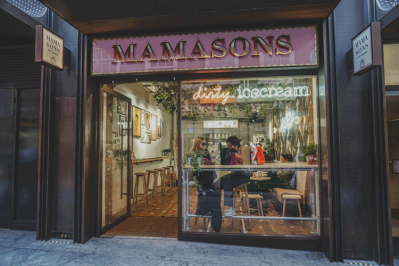10 hospitality trends for 2022
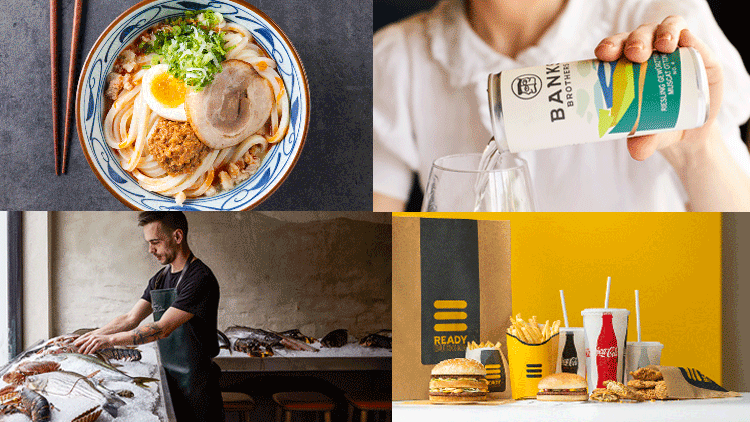
1. Restaurants losing their bottle
Concerns over sustainability, cost and practicality will see venues of different shapes and sizes rethinking how the wine they buy is packaged this year. Formats including can, pouch and keg are now seriously being considered by restaurants, with the latter - most notably KeyKeg, which come in 20-litre and 30-litre sizes - already gaining traction in mid-market indies including The Galvin Brothers’ venues. However, with cost savings of between 15% and 30% over bottles and significant labour savings to be had too, larger restaurant businesses will likely soon join the party. “By the glass prices are under huge pressure at the moment, KeyKeg offers breathing room,” says Graft Wine Company co-founder Nik Darlington, whose KeyKeg clients include 10 Greek Street, a restaurant that takes its wine very seriously indeed. A commuter favourite for decades, canned wine may also be reappraised by restaurants and wine producers. James Banks of Michelin-starred The Black Swan at Oldstead and Roots restaurants has worked with a number of top South African producers to put wines that would appear on a restaurant wine list at circa £50 a bottle into 250ml cans. Though originally developed with the group’s Made In Oldstead at-home dining service in mind, the cans are now part of the wine flight at The Black Swan. “It’s a great format for wine, but typically the brands that have explored it in the UK have been at the lower end of the market,” Banks says. “But this is serious wine made by some of the top producers in South Africa. It’s been interesting to see people’s reactions to the wine being presented at table. We’ve had a few odd looks, but once people try it they get it.”
2. High-end dining goes inflexible
After a few years of having to bend over backwards to suit people with all kinds of allergies and ‘allergies’, 2022 may well be the year that restaurants finally crack. More and more chefs are set to follow the lead of Ynyshir chef-patron Gareth Ward’s ‘delicious pigheadedness’ (as The Guardian critic Grace Dent puts it) and refuse to cook for people that either can’t or don’t want to eat the ingredients their menus are focused on. Typically - and certainly in Ynyshir’s case - this means meat, but other bones of contention include dairy and gluten. Bristol’s Casamia warns customers not to book unless they are happy to skip courses they are unable to eat, while Manchester’s Mana refuses to make menu adaptations for dislikes and doesn’t cater for vegans and those that require lactose-free meals. A little inhospitable for hospitality? Perhaps. But with tight teams and rising costs high-reaching restaurants are being forced to focus on their core customers (vegans, for example, make up a tiny proportion of high-end restaurant-goers) to make the maths work.
3. Gone fishing: restaurants take control of the seafood supply chain
Lockdown forced chefs and restaurants to look more closely at supply chain logistics as they implemented meal kit and other delivery services. Turns out they were pretty good at it. Mitch Tonks has already used his decades of seafood expertise to launch his own range of top-quality tinned products and has also found time to develop an innovative delivery business that seeks to change the way people buy, cook and eat fish. Named after the chef’s south west-centric casual dining business, Rockfish Seafood at Home gives customers direct access to Brixham Market, allowing them to order catch as it comes off the boats and get it delivered to their door the next day in much the same way as his restaurants do. “If you want the very best it makes sense to get as close to the supply as you possibly can and to cut out the middleman,” Tonks says. “I’ve always dreamed of having an end-to-end fish business where we catch, process and deliver everything. Being fully involved in the supply chain is a very powerful thing indeed.” Chelsea and Hackney-based mini group The Sea, The Sea, meanwhile, is also circumnavigating wholesalers. It had its own van that makes regular runs from ports including Looe, Newlyn, Plymouth and St Ives to London giving it complete control over the product while cutting down on time lag. The seafood - much of it aged at its Hackney site - is available for other restaurants to buy. Next year will see the launch of Shaun Henderson and Neil Wager’s Off the Hook restaurant and fish ‘butchery’ in Wapping, which will source its fish largely from the Jurassic Coast. Against the backdrop of supply chain issues and diners wanting to know exactly where their fish comes from, more businesses are likely to follow suit.
4. The rent crisis rumbles on
The Government has been kicking the rent can down the road like a child who’s lost its football, but the lease forfeiture moratorium banning commercial landlords from evicting a tenant for non-payment of rent is expected to finally come to an end in March, with fears that the repeated extension of the measures will not be enough to stop a wave of business insolvencies once the protections do expire. “I’m not expecting a tsunami of business failures, as so much as happened in the last year to push bring landlords and operators to the negotiating table,” says Ted Schama, managing director at property agent Shelley Sandzer. “But for those that haven’t been able to sort their house out, it will be the end of the road.” In November last year the Government announced that new laws and a Code of Practice were being introduced to help resolve disputes between landlords and commercial tenants over rent arrears. They include a legally-binding arbitration process for commercial landlords and tenants who have not reached an agreement by the time the moratorium expires. But even this may not be enough to protect every business. “The arbitration piece is being affected now, but from what we’ve seen it’s not been definitive or quantitative enough to force people’s hands one way or the other,” adds Schama. “And that’s where we’ll see fallout.”
5. Dessert bars (again)
Anyone old enough to remember Jason Atherton’s attempt at a dessert bar when he launched Pollen Street Social might have a serious case of déjà vu in 2022. This most tricky of restaurant genres looks set to make a comeback next year with numerous openings planned. In London, a top pastry chef will soon launch an ambitious desserts-only restaurant on the edge of the City while, a little further to the east, The Proof bakery will open a bakery and profiterole bar in Dalston. Meanwhile in the Midlands, Birmingham-based chef Andrew Sheridan will launch Planet 8, a dessert bar for guests at his ambitious, evenings-only restaurant 8 that will also open in the day to offer a desserts-based tasting menu. Like 8, the new space will have an edgy, night club-vibe and offer a menu themed around the number - yep, you’ve guessed it - eight. “All the dishes will be desserts, but we will move from savoury to sweet as the meal progresses, serving eight very sweet dishes in a row just isn’t going to work. It will be like eating on a spaceship,” says Sheridan, who will draw inspiration from the gods that each of the planets in the Solar System are named after (he’s not counting dwarf planet Pluto). Currently in development are a mushroom and truffle-based dish and a sweet that resembles a bleeding human heart inspired by Mars, the god of war.
6. Udon – the new ramen?
Ramen concepts have swept the UK over the past decade, but now there’s a new noodle dish in town for diners to try out their zuzutto technique on. Until this year, udon was not especially well-known on these shores; except, perhaps, in London, where homegrown udon-specialist Koya has been making its mark for more than a decade. But things look set to shift more broadly now, thanks primarily to the arrival of Marugame Udon. Launched in 2000, Marugame Udon is the world’s largest udon noodle chain, with more than 800 fast-casual restaurants in Japan and a further 250 across the rest of Asia, the US and Russia. It’s arrival in London earlier this year, which also marked its debut in Europe, is a significant moment, with the group targeting a fast-paced expansion across the UK. Marugame Udon specialises in Sanuki-style udon from Japan’s Kagawa prefecture - now the dominant style of udon in Japan - and tempura, offered at a notably low price point that’s more QSR than fast casual with freshly-made bowls of noodles available for as little as £3.45; a point of entry low enough to encourage diners to take a punt, even if they’re not familiar with the core product. Rival brand Kineya Mugimaru – which has 500 sites across Japan, Hong Kong and the US – is also understood to be eyeing expansion having launched in London and Cambridge this year. There’s no doubt about it, udon is here to stay.
7. The proliferation of vegan cuisine
Vegan food has dominated the dining out sector in recent years, but efforts have largely been focused within the casual dining market, led by innovations such as the Beyond Meat burger and pulled jackfruit. But now, things are starting to change across the hospitality spectrum, with movement in both the fine dining and QSR spaces. The past six months has seen not one, but two of the world’s most renowned restaurants announce plans to axe meat from their menus proving that plant-based is now firmly embedded in the upper-echelons of the fine dining world. In New York, Daniel Humm announced back in May that his three-Michelin-starred and 2017 World's 50 Best Restaurants list topper Eleven Madison Park would be going entirely vegan; while, in Copenhagen, Rasmus Kofoed’s Geranium, which finished second behind Noma at this year’s World's 50 Best Restaurants ceremony, recently said that it would be refocusing on plant-based and pescatarian dishes. Not everyone is ready to embrace the change. Humm has parted company with Claridge's over his desire to create a fully plant-based menu at his Davies and Brook restaurant in the hotel but his stance will no doubt make other chefs take a look at plant-based cooking. Meanwhile, in the QSR market, McDonald’s finally debuted it McPlant at the end of last year in a limited number of restaurants with its rollout to be accelerated this year. Hot on its heels is the arrival of vegan fast food brand Ready Burger, which bills itself as the 'first value-driven, fully plant-based quick service restaurant in the UK', marks a major moment in the accessibility of meat-free dining. The brand’s signature ‘Ready Burger’ costs £1.99, with the whole menu pitched at prices similar to those of McDonald’s. With two sites already open and two more in the pipeline, Ready Burger has plans for 'rapid expansion' that will target 'densely populated, high footfall locations'; a move that could bring plant-based cuisine more into the mainstream than ever before.
8. Rigid restaurant rules
As Henry Ford might have said, had he been a restaurateur not a car maker, you can come in any time to eat as long as it’s 8pm for two hours on a Thursday. OK, so it might not be as extreme as this, but eating out in 2022 is likely to be even more on the restaurant’s terms than ever before thanks to a continued struggle with staffing, unpredictable dining habits as a result of the ongoing pandemic and a desire to create a better work-life balance for both kitchen and front of house teams. Expect more restaurants, even those located in traditionally high footfall locations such as Soho, to only open for dinner rather than lunch, and possibly only later in the week to give staff time off. We’re also going to see more places adopting a single sitting, such as Maos in Shoreditch and Oxeye in Nine Elms, as well as bringing forward final seating times to avoid staff having to stay too late into the night when a group turns up at 10pm demanding a 6-course dinner. This isn’t restaurants being inflexible for the sake of it but rather having to adjust to a new normal that sees the priorities of their staff and not the customer being put first and helping them navigate what is likely to be another challenging year for hospitality.
9. More menu engineering
Restaurants have already been forced to increase prices as a result of rising costs because of Brexit and inflationary pressures over the past year or so. With costs only expected to go one way in 2022 (ie upwards) we’re going to see even more creativity in their choice of ingredients, switching out expensive ones for cheaper, but no more inferior, alternatives and making the most of different cuts. Expect to see mussels replacing scallops and trout roe in the place of caviar as well as more interesting and lesser-known fish cuts, including cheeks, chops and salmon belly making it onto menus as well as fish heads – an approach successfully taken by London restaurant Fallow that serves cod’s head with sriracha butter sauce and turbot head with smoked bacon. We’re also going to see a greater use of more cost-effective meat cuts, with lamb’s belly and tongue, homemade sausages, and chicken thighs expected to put in more appearances this year.
10. Better representation for Southeast Asian cuisine
The UK isn’t short of Southeast Asian restaurants, but the majority tend to be of Thai and Vietnamese persuasion, thanks in part to immigration levels and the UK population’s travelling habits. But the seeds of change have been sown over the past few years and will likely blossom in the coming years as chefs from other countries from the Asian subregion look to bring the cuisine of their homeland over here. Filipino food has been pushed into the limelight with chefs keen to show the diversity of the cuisine, whether it in the more casual dining space thanks to newly launched Kasa and Kin or at the higher end with Budgie Montoya’s Mayfair restaurant Sarap. Another restaurant making an impact is Ramo Ramen whose Filipino-infused Japanese ramen concept successfully opened a second restaurant in Soho last autumn. Ramo Ramen’s founders Omar Shah and Florence Mae Maglanoc have steadily built a name for themselves through their Filipino-influenced restaurants, which also includes Bintang in Kentish Town. Burmese food is also starting to gain more traction with Burmese restaurant group Lahpet opening a second restaurant in the capital, in Covent Garden, next month. Singaporean restaurateur Ellen Chew, meanwhile, is showing no signs of slowing down with plans to take her hawker-market style Singapulah concept that was originally tested as a pop up into a bricks and mortar site. Then there’s Malaysian chef and restaurateur Mandy Yin, owner of renowned Holloway Road restaurant Sambal Shiok. Rumour has it that Yin is looking to bring the restaurant to a much more central location this year, so watch this space.

